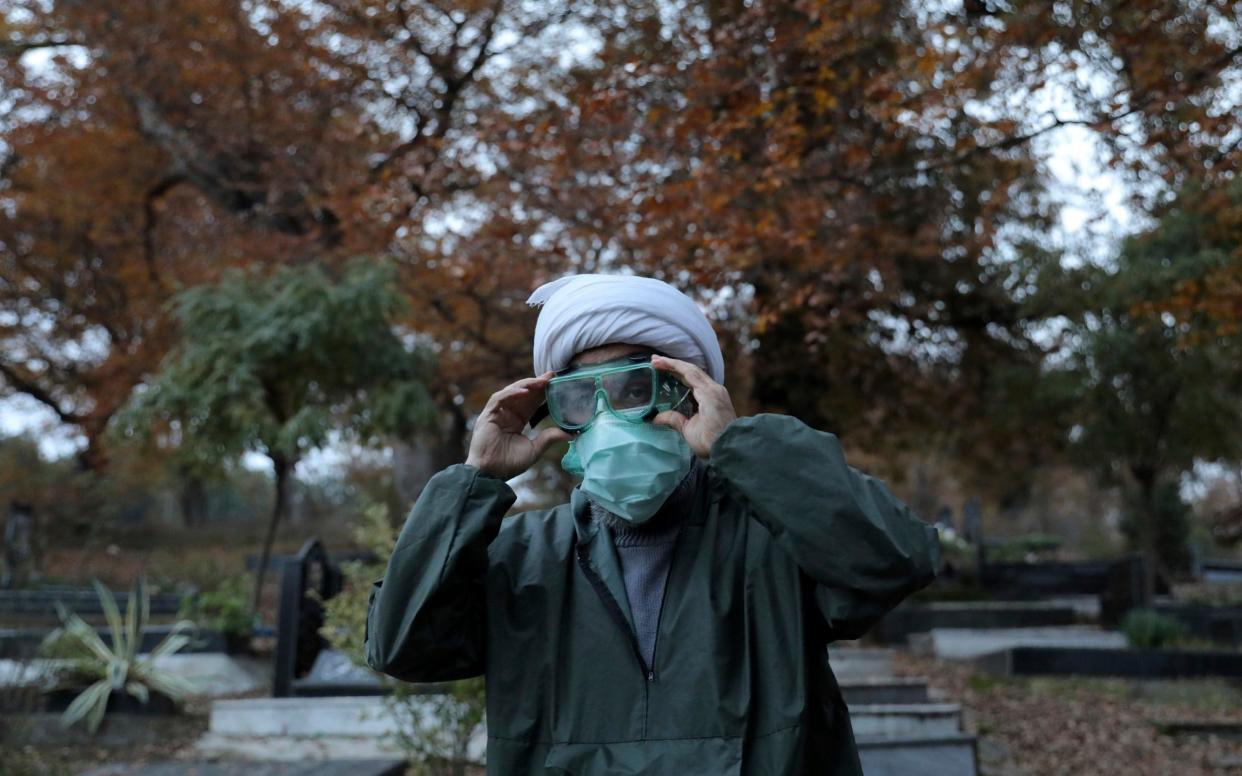Iran's supreme leader bans import of American and British Covid vaccines

Iran’s Supreme Leader on Friday declared that all coronavirus vaccinations produced by the UK and the US, countries the cleric deems to be “untrustworthy”, will be banned from entering Iran, severely restricting vaccination options for hardest-hit country in the Middle East.
“Imports of U.S. and British vaccines into the country are forbidden ... It’s not unlikely they would want to contaminate other nations,” Ayatollah Ali Khamenei said in a live television address on Friday morning, adding that drug companies from his long-time adversaries send vaccines to other countries to “see if they work or not”.
“If their Pfizer manufacturer can produce a vaccine, then why do they want to give it to us?” he said. “They should use it themselves so they don’t experience so many fatalities. Same with the UK”.
Iran is struggling to contain its Covid-19 outbreak which has so far infected nearly 1.3 million people and killed nearly 56,000.
The supreme leader also said he also had doubts over the French due to a 1990s blood scandal in which France delivered blood supplies to several countries, including Iran, that were later found to be infected with HIV.
Friday’s ban caused the cancellation of an existing deal to import 150,000 doses of the Pfizer-BioNTech vaccine which had been secured with the help of a group of US philanthropists.
Iranian officials have repeatedly said that US sanctions on the country undermine any efforts to purchase foreign-made vaccines and launch mass vaccination campaigns.
Iran has several other vaccine candidates, Khomeini said, though none are expected to clear animal trials before the end of February.
The central bank governor said in December that Tehran was in talks with China to receive a million doses. Officials also reportedly held discussions with Russia about joint production of its Sputnik V jab. Both are allies of Iran.
The government is also trying to secure 16.8 million doses of vaccines from Covax, a global vaccine effort operating under the World Health Organization, dedicated to assuring fair access for low- and middle-income countries.
Despite the ban, Iran is still part of the Covax scheme, their spokesperson said.
According to Gavi - a vaccine alliance that helped set up Covax - the only vaccine available to Iran through the scheme, now that they are boycotting the US and the UK, will be an AstraZeneca vaccine produced in India. Covax has a deal for 200 million doses to share through all participating countries across the globe.
Iran began human trials last month of its first domestically-produced Covid-19 vaccine.

